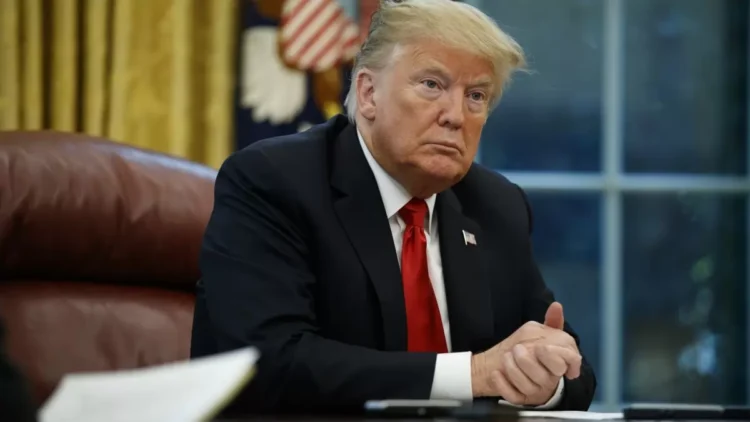By Aaron Miller-
The Colorado Supreme Court has ruled that former U.S president, Donald Trump, is ineligible for the presidency under the constitution’s insurrection clause, setting the stage for a potential showdown in the US Supreme Court.
The decision, coming as Trump prepares to run for the presidency in 2024 intensifies the legal battles surrounding the former US leader.
The ruling hinges on Section 3 of the 14th Amendment, a provision that has never been utilized to disqualify a presidential candidate in history.
Designed to prevent former Confederates from holding office after the Civil War, Section 3 bars individuals who engaged in insurrection or rebellion against the Constitution. The application of this clause to Trump’s case marks a significant and controversial moment in American legal history.
An appeal from Trump’s legal team could pose the question of whether an interpretation of whether the Disqualification Clause of the 14th Amendment can truly disqualify Mr Trump from being president.
The ruling overruled an earlier decision from a District judge that stated that Trump could not be barred from the ballot because it was unclear that the provision was intended to cover the presidency.
Legal experts note that dozens of lawsuits nationally have sought to disqualify Trump under Section 3, reflecting the gravity of the accusations against him. The clause, rarely invoked since the Civil War era, is now at the center of a heated debate about its applicability to a modern political figure.
The 4-3 decision by the Colorado Supreme Court, composed entirely of justices appointed by Democratic governors, removes Trump from the state’s presidential primary ballot. While this doesn’t prevent him from running across the rest of the US, it signals a growing challenge to his candidacy.
Colorado officials emphasize the urgency of resolving the issue by January 5, the deadline for printing the state’s presidential primary ballots.
The court’s decision asserts that Trump is disqualified from holding the office of president under Section 3 of the 14th Amendment, marking a historic application of the constitutional provision.
Trump’s campaign has swiftly responded, indicating their intention to appeal to the US Supreme Court. The legal battle now shifts to the highest judicial authority, where the final decision on Trump’s eligibility will be determined.
The immediate consequence of the Colorado Supreme Court ruling is Trump’s removal from the state’s primary ballot, affecting voters’ ability to choose him in the presidential election. However, the broader concern for Trump lies in the possibility of other states following Colorado’s lead.
While Trump lost Colorado by a significant margin in 2020, the fear is that more courts and election officials may exclude him from must-win states, complicating his path to the presidency. The legal maneuvering around Trump’s eligibility has intensified, raising questions about the constitutional interpretation, partisan influences, and the potential disenfranchisement of his voter base.
Legal and Political Implications
Legal experts emphasize the significance of the decision, framing it as a constitutional milestone. The interpretation of the Disqualification Clause of the 14th Amendment is at the heart of the matter, prompting speculation about whether Democrat-appointed judges in Colorado are objectively interpreting constitutional law or acting on partisan motivations.
The US Supreme Court, with its majority potentially favoring Trump, will have the ultimate authority to weigh in on the constitutional grounds of the Colorado ruling.
The outcome of this legal battle will not only shape Trump’s political future but may also influence perceptions of the judicial system’s impartiality in a highly polarized political landscape.

